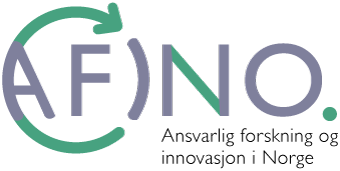Organisation - AFINO
Organisation
Organisation
AFINO (Norwegian: Ansvarlig Forskning og Innovasjon i Norge) is a network and learning centre for responsible innovation and corporate social responsibility in Norway. The centre was established in 2019 for a five-year time period, and is funded by the Norwegian Research Council through the programme SAMANSVAR.
Headed by NTNU (Programme for Applied Ethics, Department of Philosophy and Religious Studies) in collaboration with BI, UiB and OsloMet, AFINO consists of a network of university partners and research projects. Our associated research partners are NIFU, UiO TIK, UiS, NORCE and HVL. Together, we explore how research and innovation may better address future societal challenges through research and learning laboratories.
AFINO organizes activities and events to promote better integration between researchers, the industry, the community and policy makers. Our goal is to build new learning arenas and a common understanding of what responsible innovation is.
Centre structure
AFINO is a virtual, transdisciplinary centre gathering a broad range of actors. The centre is lead as a collaborative project by NTNU, BI, OsloMet and UiB, with NORCE, NIFU, UiS, TIK and HVL as associated partners. Together, they represent "the Hub."
This hub, or network of partners, is managed by the management group consisting of the centre leader and project coordinator (NTNU) as well as one representative from each of the core partners (BI, OsloMet, UiB).
The steering committee consists of representatives from all hub partners, research projects linked to centre and, collaborating business partners, as well as an observer from the Research Council of Norway (RCN). They meet twice a year.
The International Advisory Board consists of nine experts in their respective fields. They come from acknowledged universities around the world and advice the AFINO management group and steering committee on activities and policy.
You can read more about the board here.
The centre network also includes associated research projects and a stakeholder pool (policy makers, industry associations, companies, NGOs, labour unions, consumer groups, public servants and high school students). Associated research projects are selected based on existing collaboration with the centre partners and their ambitions to build RRI and/or CSR competence with industry partners.
